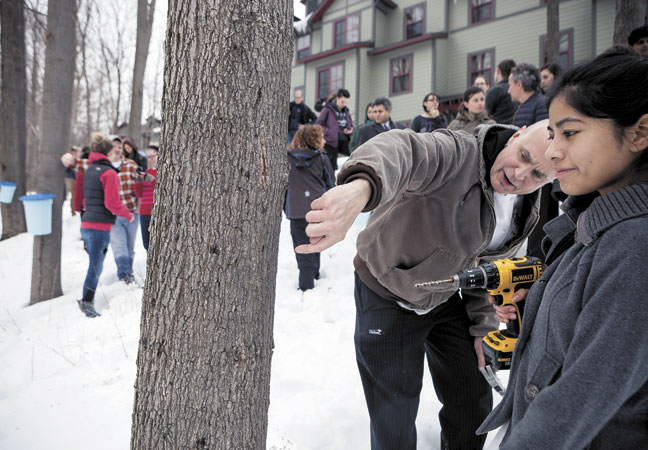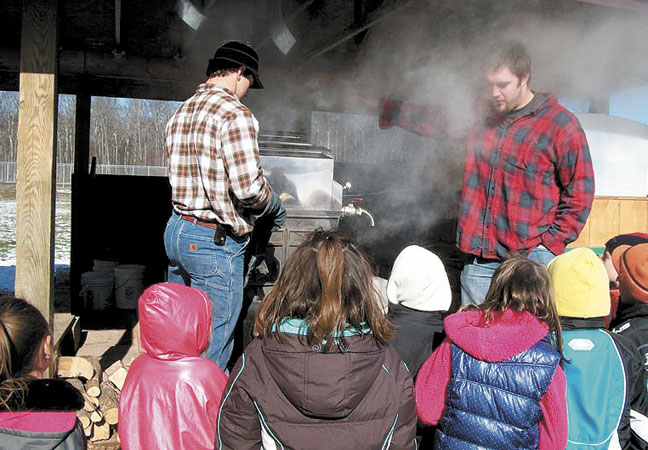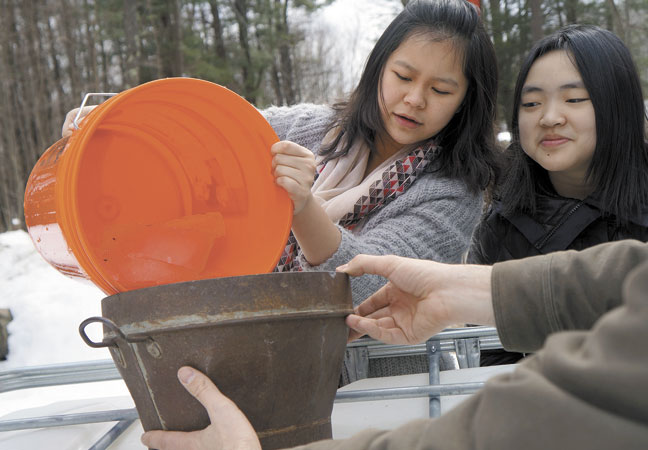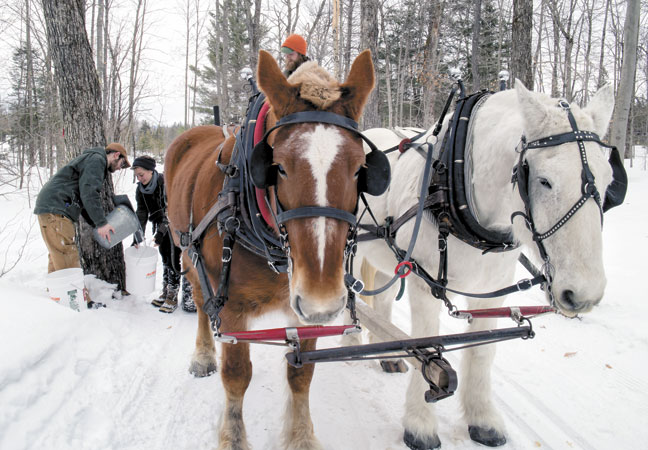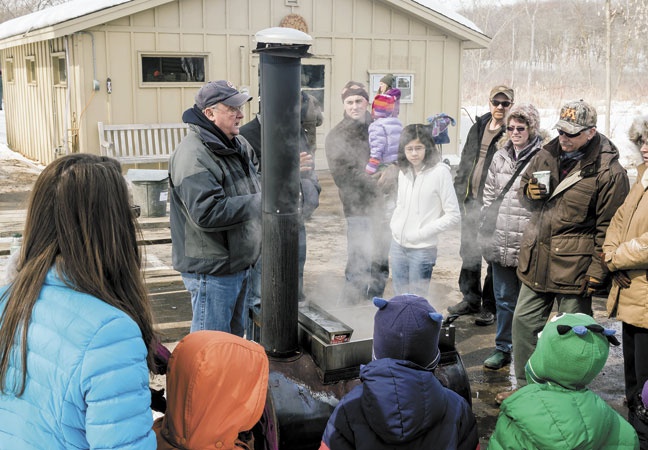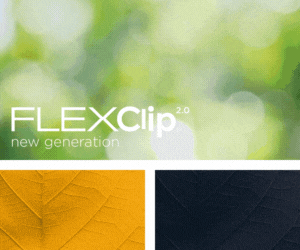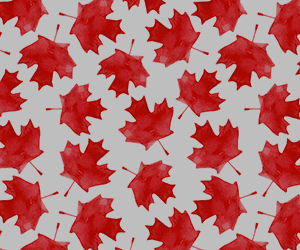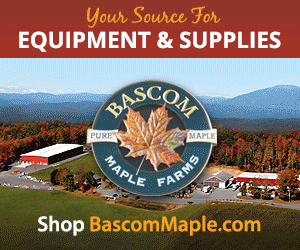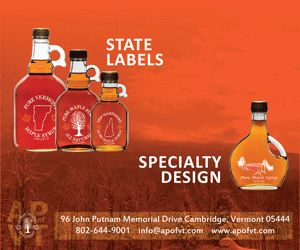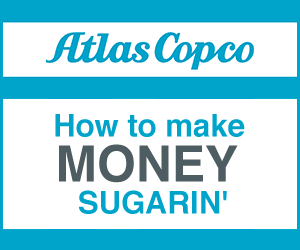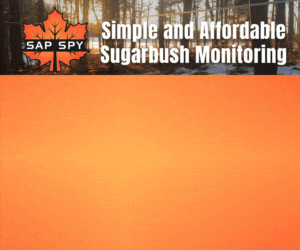Headlines
Colleges tap into education through maple
Schools designing academic courses centered around making maple syrup
By MIKE RECHLIN | SEPT. 21, 2017
The maple syrup industry has always had important links to Colleges and Universities. As an industry that continues to go through rapid changes in technology, we rely heavily on university research to drive innovation and change.
There are, however, growing connections being made between the sugarhouse and the classroom; ways in which the science, history, and culture of maple syrup making enrich the educational offerings at many colleges and universities.
In researching this article, I found 25 institutions of higher education that currently include instruction in some aspect of sugaring in their programs. From my own experience teaching maple syrup courses to students at the college and university level, I know it’s a good match. More and more educators are designing programs that include project centered learning, interdisciplinary studies, and critical thinking, all of which can be part of an academic course or program that includes making maple syrup. In the cases described below, you’ll see how faculty members are using making maple syrup in courses and extra-curricular programs to reach those objectives.
Extra-curricular activities making maple syrup
More than half of the schools in this survey engage students, faculty, alumni and community members in syrup making as a non-credit, extra-curricular activity. This proves what we all know about sugaring; that making maple syrup can be fun. If you get students showing up and working hard, on their own time, without awarding course credit, it must be fun. For students accustomed to spending their time in a classroom, being outdoors and in the woods in the spring is fun. They relish the camaraderie of time in the sugarhouse, the sense of accomplishment at the end of a long day, and the sweet maple taste of the product produced. Most university and college extra-curricular sugaring opportunities are associated with a university farm or nature center.
Courses on sugaring or that use maple as a focus
In addition to the non-credit syrup making activities, several academic institutions have developed courses with maple as the focus. In all cases students participate in a class project where they make maple syrup. However, the technical process of syrup making is not an end in itself, but serves as a jumping off point to engage students in activities and thinking of a broader nature. Take a look at some of these courses, and see if you are ready to sign up.
Dr. Jamie Schuler at the University of West Virginia in Morgantown offers a Forestry Department course titled: Sugarbush Management and Maple Syrup Production. With 250 trees tapped, his course gives students the practical experience of making maple syrup, and much more. By combining forest management with syrup making, Schuler’s students get an applied knowledge of tree biology along with the physical science and chemistry of running an evaporator. As a forest dependent activity, it is natural to find forestry students interested in sugaring. However, if you look a little further, you can find that there is a lot more education to be had out of maple.
At Alfred University, Alfred NY, Professor Laurie McFadden offers an honors course titled: Maple Syrup The Real Thing. With 30 to 60 trees tapped each year, students do get experience with a drill. However, syrup making is not the sole class goal. Students in Laurie’s class explore topics such as U.S. and local history, environmental science, business and economics, storytelling, and biology. She explains that in addition to the classroom learning, students get a chance to explore the outdoors, learn more about their local community by visiting sugaring operations, understand the cultural and economic importance of maple syrup to peoples lives and, of course, eat many delicious foods. Laurie is proud of the distinction her course gained by being listed in Buzzfeed’s 2013 list of “23 Awesomely Weird College Classes to Enroll in Immediately.” She recruits students with a course description that starts out: “Wanted: Someone with a background in meteorology, chemistry, botany, forestry, art, and cookery who is also a nature lover with lots of patience. Must enjoy long hours of hard work in the snow, cold, and mud.” That sounds like an awesomely weird maple course to me.
Stop by the campus of the Culinary Institute of America (CIA) in Hyde Park New York on a warm late winter morning and you will hear sap dripping there as well. Dr. Deirdre Murphy has students in her Ecology of Food course drilling holes and hanging buckets, and Chef Peter Greweling takes the sap into his Chocolate and Confectionery Technology and Techniques course where the students make maple syrup, and then keep on going. From tree to table, CIA students are using maple to study ecology, culture, food chemistry, and learn the practical skills of turning maple syrup into maple delicacies.
Dr. Tara L. Bal at Michigan Tech in Houghton Michigan offers an online course titled: Maple Syrup Management and Culture. Now lest you think we are talking about making virtual maple syrup, this online course comes with required time emptying buckets and stoking the evaporator. Tara says it is “the first course in the School to fill-up” at registration. Students run a community-sugaring project in the nearby village of Alberta. With Alberta pretty much tapped out, they are working toward expanding into the University’s Ford Research Forest. Building culture into the course, Dr. Bal has students work with the Keweenaw Bay Indian Community at their Winter Youth Culture Camp, where they demonstrate traditional and modern ways of evaporating sap to syrup and sugar. Acknowledging the Ojibwe as the original sugar makers in the region incorporates different cultural perspectives to the class, and creates an inclusive environment that leads to a greater understanding and appreciation for this ancient tradition.
Engaging students in maple research
The Proctor Maple Research Lab at the University of Vermont and the research and extension work done by Cornell are invaluable to our understanding of tree biology and syrup production. However, there are other universities as well working to expand our knowledge of sap and syrup.
At WVU Dr. Jamie Schuler’s undergraduate students and graduate research assistants, are studying the chemical composition of sap from maple trees grown on abandoned mining sites, and working on a comparison of sap yield from 3/16 vs. 5/16 inch tubing in the Appalachians.
Further south, at the The University of Virginia’s College at Wise, Dr. Ryan Huish, an ethnobotanist, engages students in a variety of sap and syrup research activities. Using students in his Field Botany Research course as a core, Dr. Huish has organized the “Southern Appalachian Maple Research and Activities Team” with the appropriate acronym SAMaRA. Their aim is to collaborate with maple syrup makers in the Appalachian community to assess the potential of alternative maple species by comparing sugar content, sap volume, and phytochemestry. Ryan engages his students in activities to raise the awareness of maple traditions, ecology, conservation, and socio-economic potential in the Southern Appalachians. Ryan and his students are also collaborators with ACERnet, a federally funded research team investigating the ecological and socio-economical connections of sugar maples and climate.
Interdisciplinary maple programs
Sap and syrup production is by its nature an interdisciplinary activity. Some schools are taking advantage of that to bring together knowledge and skills from many diverse areas of study. Principia College in Elsah Illinois, with 250 trees tapped, makes a good amount of maple syrup. John Lovseth, the College’s forest lands manager, teaches a Sugarbush Management course designed specifically to draw students from across the disciplines. In any given year you can find biology majors measuring trees, dance majors running chainsaws, and history majors bottling syrup.
Nick Baer, Chair of the Natural Science Department at Colby-Sawyer College in central New Hampshire describes their course as “a wonderful integrated course across our curriculum with graphic design students creating our bottle labels, creative writing students producing poems for the back label, business students conducting break-even analyses and production surveys in the region, and science majors developing a long-term database to evaluate temporal changes in volume and sugar content of our trees tapped. “ If it can be said that we, as maple syrup producers, are trying to squeeze every ounce of sap out of our trees, then Colby-Sawyer can be said to be squeezing every ounce of educational opportunity out of their sugaring program.
An academic minor in sugaring
If a single experience or a course is not enough for you, Paul Smith’s College, in upstate New York, has developed an academic program in sugaring. The College, with a 2,300 tap sugarbush, has had students tapping trees since its founding in 1946. With help over the years from maple experts at Cornell’s Uihlein Sugar Maple Field Station in nearby Lake Placid, the College has continuously improved and expanded its operation. Two years ago Paul Smith’s developed an 18 credit hour minor titled: Maple Production and Products. Drawing resources from the College’s departments of Forestry and Culinary Arts, students in the minor don chef whites to take courses such as Maple Sweet and Savory: Maple Uses in Culinary Baking and Confection. They then might head outside in plaid shirts and work boots for a course in Advanced Silviculture. The minor augments coursework from the Forestry and Culinary Arts Departments with courses from the Business Management Department, including: Applications in Entrepreneurship.
Expanding links between sugarhouse, classroom
If you sugar anywhere near the colleges and universities listed above (or possibly others), stop on by and introduce yourself. Invite students visit your sugarbush, or offer to come into the classroom to share your years of knowledge and expertise.
If, however, you live near a college or university that is not on this list, you might stop by that institution of higher education with this copy of The Maple Syrup Almanac. Show them this article, and ask: why not?
Colleges and Universities
with Maple Syrup Programs
College or University Location Focus Taps
Alfred University Alfred, NY C 30-60
Anabaptist Mennonite Biblical Sem. Elkhart, IN EX 12
Antioch College Yellow Springs, OH EX 80
Calvin College Grand Rapids, MI EX 60
Colby- Sawyer College New London, NH C, IP 150
Cornell Univ.: Arnot Forest Ithaca, NY R 4,700
Cornell Univ.: Uihlein Field Station Lake Placid, NY R 6,000
Culinary Institute of America Hyde Park, NY C,IP 20-25
Dartmouth College Hanover, NH EX 100
Franklin Pierce University Rindge, NH IP 30-40
Hampshire College Amherst, MA EX 100
Ithaca College Ithaca, NY C 100
Juniata College Huntington, PA EX 400
Keystone College La Plume, PA EX 275
Michigan Tech Houghton, MI C 250
Paul Smith’s College Paul Smiths, NY C,M 2,300
Principia College Elsah, Il C, IP 250
Smith College Northampton, MA EX 50
Sterling College Craftsbury Common, VT IP 200
SUNY/ESF Syracuse, NY EX 3,000
University of Connecticut Storrs, CT EX 100
University of Minnesota Arboretum Duluth, MN EX 425
University of Vermont: Procter Center Underhill, VT R 5,000
West Virginia University Morgantown, WV C, R 250
Williams College Williamston, MA EX 130
University of Virginia at Wise Wise, VA C,R 100
R=Research; EX=Extra-curricular activity; C=Course;
IP=Interdisciplinary program; M=Academic minor















